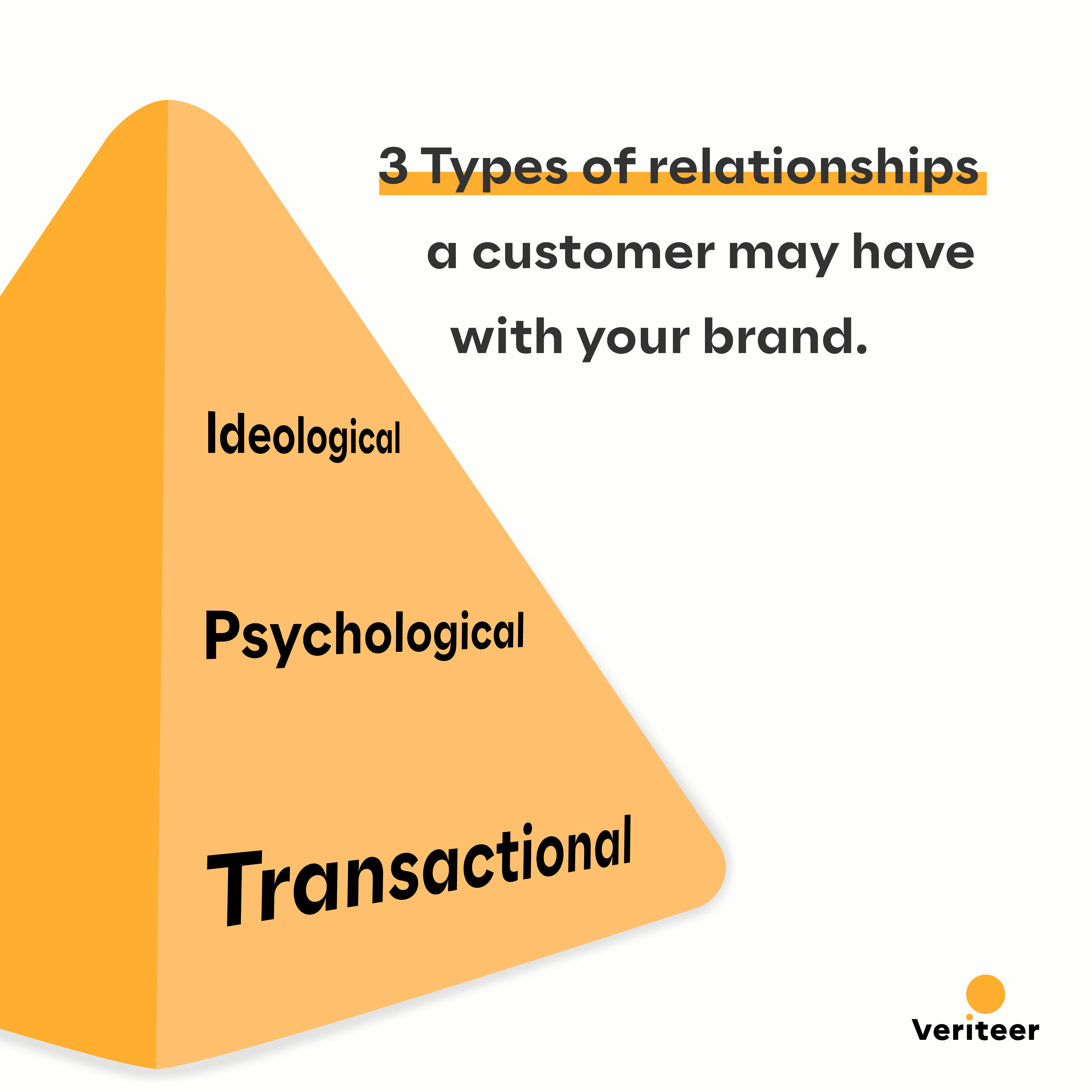We’ve discovered who a customer actually is and how organisations can become more customer-centric. But have you ever wondered how individuals transform into customers? Join us for a journey into the realm of psychology to uncover the process.
From a psychological perspective, relationships can be roughly categorised into 3 types:
- Transactional - mainly economic nature and driven by exchange;
- Psychological - based on fulfilment of psychological needs;
- Ideological - based on alignment with a certain narrative (e.g. vision, belief, principle), oftentimes more future-oriented.

Too scientific? Let's simplify these relationships between customers and brands:
- Transactional: Imagine you're having a hectic day, and suddenly, a headache strikes. You rush to the nearest kiosk for a quick solution. In this scenario, you're not concerned about the brand of the pill or the kiosk; you just want a fast remedy for your problem.
- Psychological: Now, picture your mother's birthday is approaching. You visit a gift store with care to choose the perfect card for her. This purchase is your way of showing love and care.
- Ideological: Think about your routine grocery shopping. Every time, you grab a carton of Oatly. It's not just because their oat milk tastes good, but because you support their CO2 reduction initiatives and sustainability efforts like "wow, no cow." You're not just connected to the product; you resonate with the brand's philosophy.
So, what if a brand aspires to build that ideological connection with its customers – what does it take?

Incorporating ideology into your branding is no easy feat. It's not merely about what you put in your CSR report; it's about what your company embodies in its daily operations. Ideology should be deeply woven into your company's purpose, answering questions like: What societal or sustainable impact do we aim to create? What kind of future do we envision?
Companies that integrate their social mission into their very essence often earn the title of purpose-driven companies. Harvard Business Review defines organisational purpose as "an aspirational reason for being that inspires and motivates an organisation and its partners and stakeholders, while also benefiting local and global society." Such brands hold greater appeal for consumers and employees alike, as they accept a broader responsibility beyond their business.
What sets purpose-led businesses apart is their sustainability. Consider these statistics: a 2015 HBR study revealed that 58% of companies that clearly articulated their purpose experienced a 10% growth over the previous three years. The same study indicated that purpose-driven companies are better equipped for adapting their business models, as consumers place higher trust in them and their products. On the flip side, a PwC study showed that while 79% of business leaders claimed purpose to be central to their organisation, only 68% were found to use purpose as a guide in their decision-making processes.
While purpose can occasionally propel you to the top of the market, there's a fine line between delivering meaningful brand promises and engaging in purpose-washing. When discussing ideology, authenticity is paramount — you must tell the story and also walk the walk, all for the betterment of our future. Then, and only then, will you win the hearts of your customers.
Author: Inna Shabardina
Expertise: Strategy, CX, Service Design
Connect: LinkedIn | This email address is being protected from spambots. You need JavaScript enabled to view it.
If you liked this article, why not check out:
1. How to live & breathe customer-centricity
2. Beyond transformation